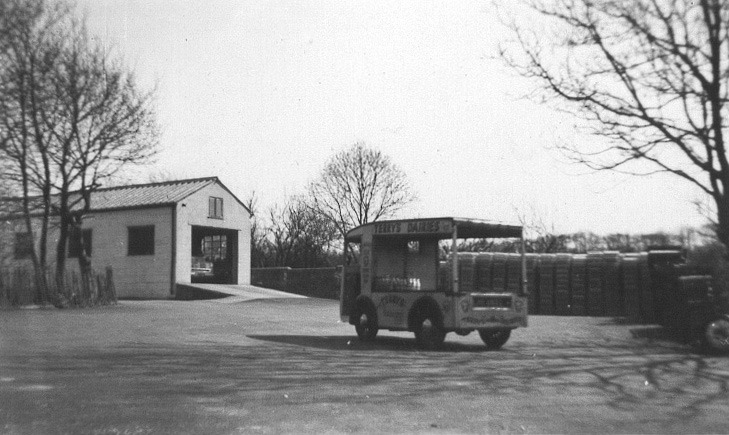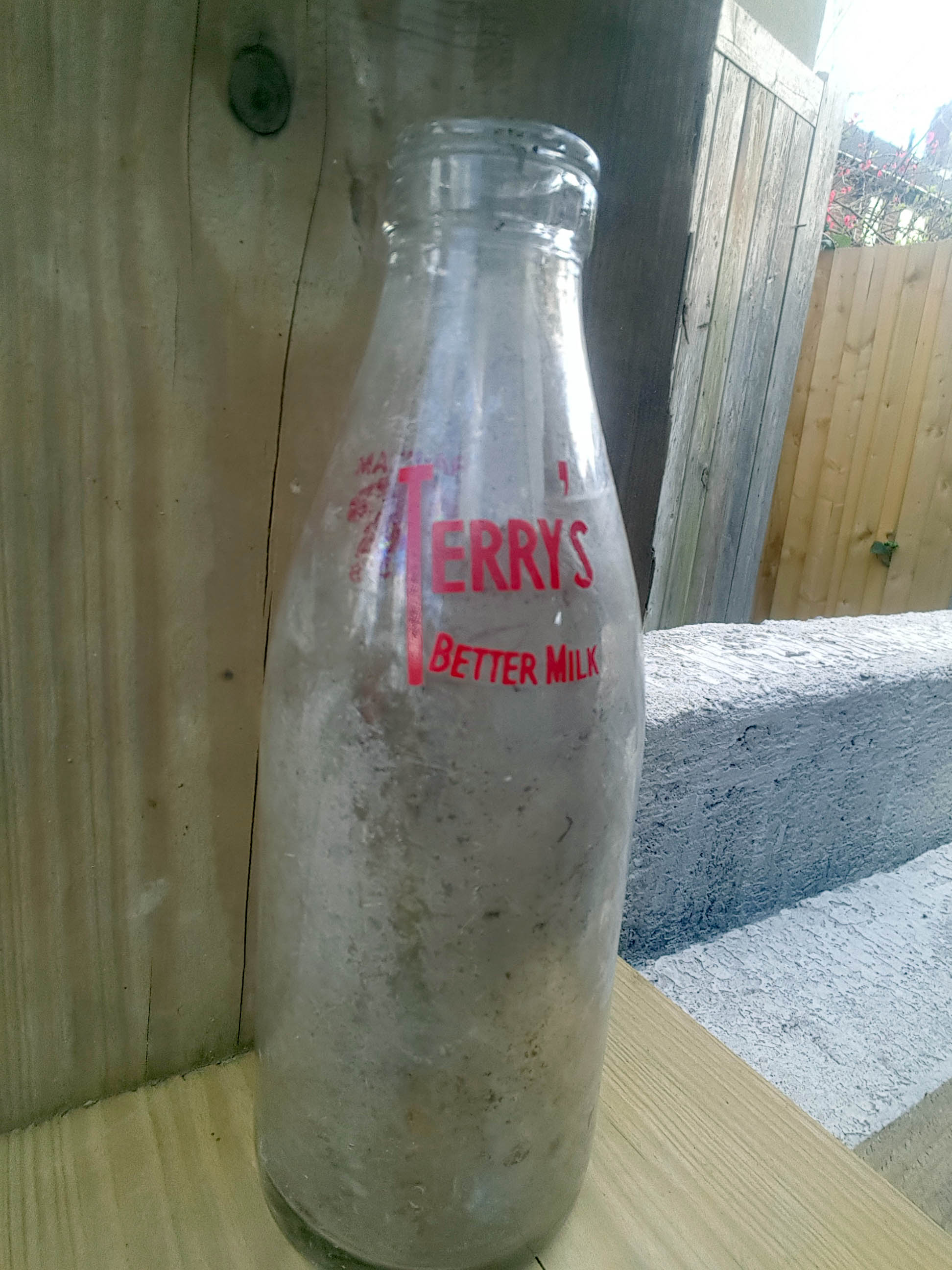Although modern day progress has meant a good number of the houses in Rainham and Wigmore have been redeveloped, there still remain a significant number whose appearance remains the same as I remember them helping my dad back in the early 1950s when I would have been between 9 and 13.
I was only 13 when my father, Bill Eatwell, died unexpectedly in 1956 but still have my memories of being his milk boy from all those years ago. He was only aged 46.
From what I know my dad was always a milk roundsman working for some time in Gillingham for Bourne & Hillier before moving in the late 1940s to Terry's dairies in Wigmore where his round covered Edwin Road, Hawthorne Avenue and back up Marshall Road. I would have been about 9 or 10 when I began to help him in the early 1950s at weekends and during school holidays.

Since we lived in St. Johns Road Gillingham opposite Gillingham park and didn't have a car it meant the daily journey to Wigmore started around 5:30 a.m. by bicycle along Watling Street and up the old Hoath lane and past the military camp which was opposite the Darland banks. To me this was like getting up in the middle of the night and there was hardly ever anyone around at that time of the morning. Not so bad in spring and summer when it was lighter, but in winter with limited street lightning, quite hazardous on a bike. Quite often after an overnight fall of snow and no gritting lorries or passing traffic, it was impossible to cycle so we had to push our bikes and walk. It was expected that “the milk must get through” 365 days a year, including Christmas Day.

Living in Gillingham with a road after road of terrace housing. I remember I used to look in awe at the detached houses and bungalows in Wigmore and Rainham and think the people there must be terribly rich. I will remember the long garden paths and often, oh what a joy!!, to find yesterday's empties out with a note for “half a pint more today please”, or even worse a note scribbled on the corner of a torn off piece of newspaper which had fallen inside a bottle. Worse still were the notes that had been put into wet bottles or when it rained overnight and the writing had become illegible.
By now many customers had upgraded to fridges, but they were still so many that relied upon the daily delivery of fresh milk. You could always depend on the occasional customer standing at their gate. “You’re 15 minutes late today milkman I've been waiting for my breakfast!”. There were so many customer habits that we were asked to go along with, but one that sticks out in my memory is of one man who I understood worked in London who went as far as to dig out and line a hole in his garden and cover it with a heavy slab. The idea being particularly on hot summer days that dad had to lift the slab and put the milk in the hole to protect it from the elements and blue tits. They were cardboard tops to the bottles back then and blue tips loved the cream.
Wet weather was always a problem. I guess in those days there were no protective clothing such as we have today and always remember dad in his Wellington boots and sodden gaberdine raincoats. But in those days probably instilled from the recent wartime spirit there were so many customers to lend a helping hand either with the spare coat or was more often the case taking in a saturated coat and placing in front of the lounge fire either to be collected later or picked up the next day.

One lady in Hawthorn Avenue every Sunday morning could be seen looking out for us up the road and then timed to perfection that by the time we arrived at her house, a breakfast table had been prepared for us with hot tea and toast.
Friday and Saturday with the days we collected the money. Oh what fun! Cold hands and fingers in winter. “Sorry Milkman, running short this week. I'll pay double next week” High value bank notes to cover a small amount etc etc. Then of course was the price factor. Probably the worst I remember was a pint costing five and a half pence and half a pint 2 & 3/4 pence (tuppence three farthings). What joy when the price went up to sixpence and 3 pence. No calculators in those days, just good old fashioned mental arithmetic.
I've climbed in and out of so many windows. “Milkman I've locked myself out. Could I borrow your boy to climb in an open my door?” The memories are never ending but young as I was I'll always remember how friendly almost everyone was and willing to chat. With the marked exception of one day not knowing the ground rules, I delivered the milk to one very large house with extensive gardens to the front doorstep only to find the door being opened and being told in no uncertain terms “I do not have my milk displayed on the front porch, there's tradesman’s path to the rear of the house”
When dad died, several customers arranged the house to house collection covering his round and presented my mother with a donation towards a cost of a gravestone as they said they wanted to give something by which he would always be remembered. I still have a cutting of the tribute that was written by a customer and published in the London evening newspaper. Going through some of his papers some time after he died I found the last pay slip of February 1956 amounting to £6, 19 shillings and sixpence. How we managed as a family of four, I will never know but like so many others we did and we were happy.
Frank Eatwell





































































































